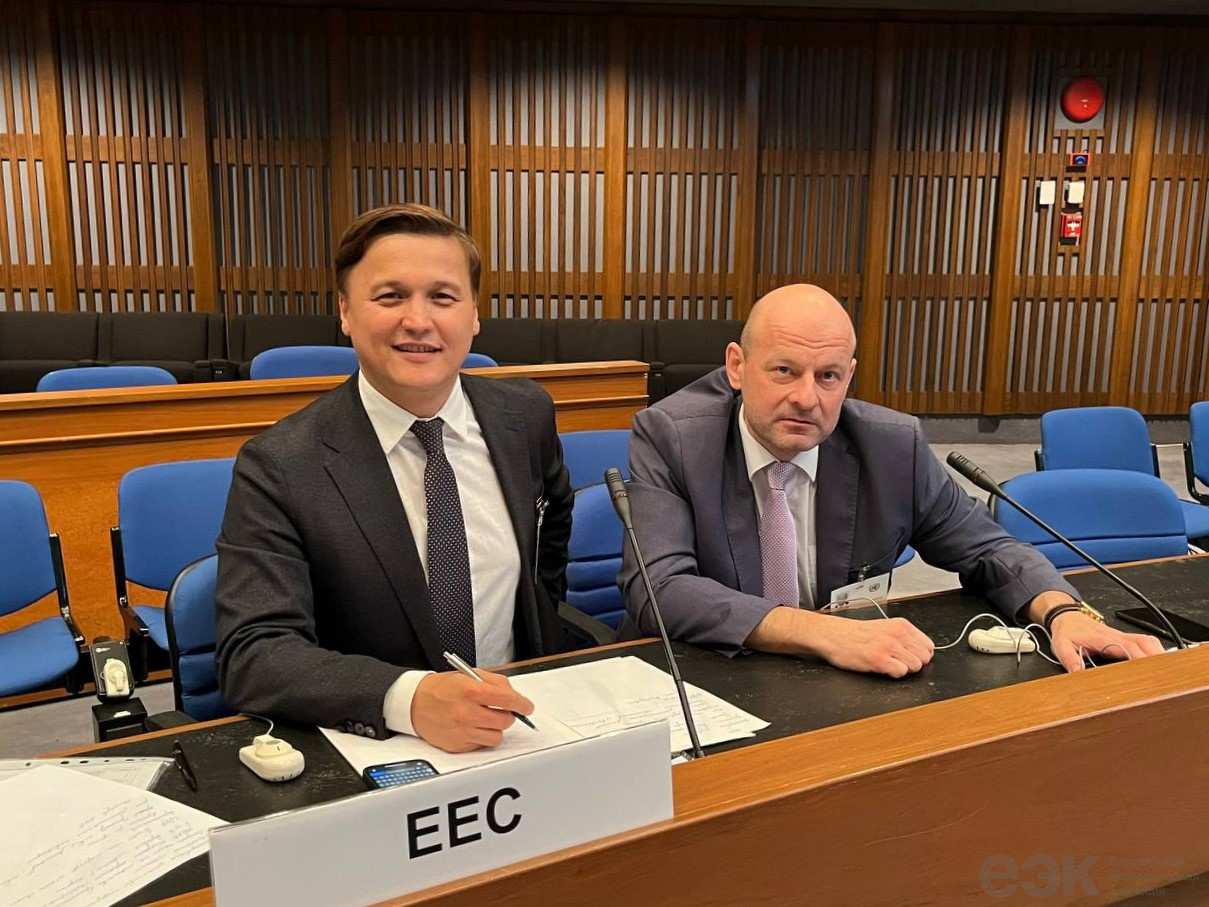News
EAEU and ESCAP agreed to exchange experiences on overcoming crisis situations
During one of the sessions Askar Japparkulov noted, in particular, that the consequences of the pandemic were unprecedented in scale, both economically and socially. Supply chains, which were not fully restored after the pandemic, were also negatively affected by the sanctions.
"Supply chain disruptions lead to shortages of key goods in national and global markets (for example, a temporary shortage of oil, flour and sugar, shortages of wheat in Africa), price rises, job cuts, underutilization of shipping containers and general negative implications for economic well-being of countries," emphasized Askar Japparkulov.
In his turn, Hamza Ali Malik, Director of the ESCAP Macroeconomic Policy and Financing for Development Division, noted that the Asia-Pacific region saw an increase in public debt and in the number of the poor by 2.7 million people as a result of food and fuel price hikes.
"Significant fiscal and debt pressure together with inflation growth and rising interest rates constrain the budgetary mechanisms for supporting economic growth. Supporting economic recovery through macro-economic policy is becoming increasingly difficult," said the ESCAP representative.
The conference paid particular attention to the need to build a multipolar global economic system. Over the past decades the global economy saw an advent of new strong players: China, India, the countries of South-East Asia and the Gulf whose interests differ significantly and must be taken into account when adopting the rules regulating the international economy. Further efficient cooperation with international organizations and other external partners to address global issues given the growing crisis and uncertainty is one of the key EEC tasks according to the Strategic Directions for Developing the Eurasian Economic Integration until 2025.
"ESCAP countries and we share common goals, objectives and challenges that must be addressed by joining forces, for example, in terms of sustainable and inclusive growth and green economic development," said Askar Japparkulov.
As part of the thematic sessions, the conference also considered the matters of ensuring economic sustainability through promoting trade and investment, in particular, through unifying investment regimes to encourage intra-regional investment; expanding seamless and sustainable transport connectivity; financing sustainable infrastructure and climate projects despite economic difficulties and increased public and corporate debt; and promoting digital development as a factor of sustainable recovery and a way to improve communication among people.
The EEC representatives also held working meetings with Arman Isetov, Ambassador Extraordinary and Plenipotentiary of the Republic of Kazakhstan to the Kingdom of Thailand; Evgeny Tomikhin, Ambassador Extraordinary and Plenipotentiary of the Russian Federation to the Kingdom of Thailand; Nikolay Pomoshchnikov, Head of the ESCAP Subregional Office for North and Central Asia; Hamza Ali Malik, Director of the Macroeconomic Policy and Financing for Development Division; and Rupa Chanda, Trade, Director of the ESCAP Investment and Innovation Division. Following the working meetings the parties agreed to strengthen cooperation in terms of arranging joint research, developing country recommendations, holding joint events and to exchange experiences on overcoming crisis situations and ensuring inclusive and sustainable development.
For reference
The Third Ministerial Conference on Regional Economic Cooperation and Integration in Asia and the Pacific is one of the major high-level events of ESCAP.
ESCAP is the UN Economic and Social Commission for Asia and the Pacific, one of the five regional UN commissions. The ESCAP headquarters are located in Bangkok, Kingdom of Thailand. ESCAP has 53 member States and 9 associate members.






